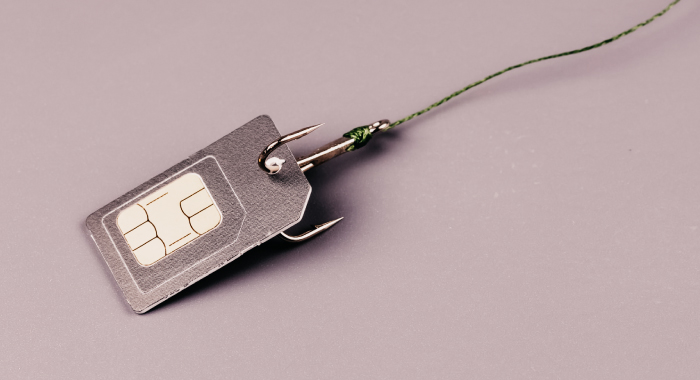Around the beginning of the year, as many of us update our habits and vow to make a start, fraudsters are likewise updating their scams. The best protection is knowledge, so here are four common scams to understand and watch out for in 2022.
Phone SIM Swapping
Scammers have all kinds of ways to get their hands on potential victims’ personal data, but a relatively new form of fraud is known SIM swapping. A fraudster will get your mobile number assigned to a new card and insert it into their own phone, enabling them to receive password codes or sensitive banking information on your behalf. The scammer can pull this trick by calling your mobile carrier and pretending to be you; using personal details they’ve hacked such as your social security number, date of birth or account PIN.
To protect yourself from SIM swapping, update your online privacy settings often, for all accounts. The less data criminals can access, the harder it is to get the personal details that enable this type of scam. Beyond that, look out for emails about changes to your cell phone accounts that you haven’t authorized. If you notice any strange communications or issues with calls and texts, get in touch with your mobile carrier immediately.
Fake Utility Company
In Massachusetts, there have been reports of scammers posing as an employee of an ‘alternative’ utility company and telling customers they can lower monthly bills by switching service providers. It may be a phone call, or possibly a door-to-door solicitation. The scammer will try to extract payment – but the service doesn’t exist. A similar scam involves a fraudster who will claim to work for a utility and threaten to shut off your electricity, heating or water if a sum of money isn’t paid.
If a person claiming to be a utility representative gets in touch, don’t share any personal information, including your account number. Instead, ask them for identification. They should also be able to tell you your account number. If you have any suspicions, listen to your gut. A very easy route is to hang up and dial back on an official number for the company. Also keep in mind that you have shut-off rights, which means your utilities can’t suddenly be turned off – so don’t act fast. Take the time to understand what’s really going on.
Social Media Scams
The past few years have seen an explosion of social media scams. Fraudsters can take advantage on consumers via social media in a number of ways, but according to the Federal Trade Commission, the biggest threats today are investment fraud, romance scams, and shopping fraud. During investment fraud, the scammer will often connect with their victim in a social manner, pretending to be a new friend or a friend of someone they know. The scammer will gain the victim’s trust and convince them to send money as an ‘investment’. Many investment scams these days involve cryptocurrency. A romance scammer takes a similar approach, gaining the trust of their victim before asking for money. Shopping fraud usually involves scammers who advertise a product and receive payment, but never deliver the item.
To avoid social media fraud, check that your privacy settings are a strict as possible. This makes it much more difficult for unknown people to contact you via social media. Still, it’s fairly simple for a scammer to copy the profile of one of your friends, so if you start receiving strange messages from a person you think you know, block them or get in touch through alternative means, like a phone call or email. Finally, only buy from well-rated sellers and only send payments using official transaction pages – don’t give out your credit card number to a seller.
Virtual Fraud
One result of the COVID-19 pandemic is that many people are doing more shopping virtually. This opens up new opportunities for scammers to trick consumers into paying for products and services that don’t exist. A recent scam involves fake dog breeders, wherein the victim believes they are buying from a legitimate business but in reality, the digital presence for the company is fake. While a few years ago a shopper would have insisted on seeing a dog personally, consumers’ shift to more digital behavior provides an opening for scammers.
When shopping online, look out for red flags. If the price is too good to be true, it probably is. Shop from official platforms or sources that have been verified by friends. Where possible, avoid making big purchases virtually, even if you think everything seems OK. If you do opt to make a large online purchase through a non-typical shopping platform, don’t share your credit card information with a private seller. Instead, arrange for payment to be made via a secure digital channel, such as PayPal, Venmo or Zelle.
.png?width=258&height=68&name=Harvard_Primary_Logo_Horiz_RGB%20(2).png)




